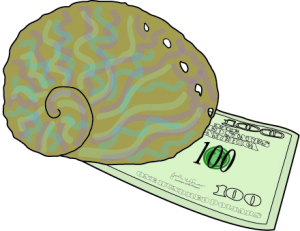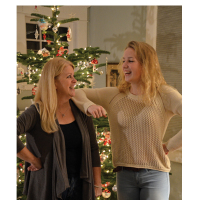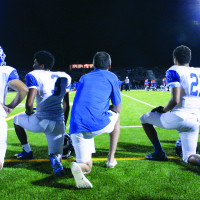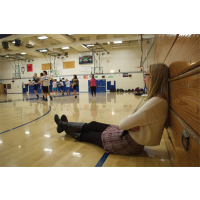
Along the jagged coastline of northern California, Highway 1 twists and turns in time with the Pacific Ocean. It’s not the kind of place you’d want to go speeding along at 70 miles per hour. Unfortunately, that’s where I found myself more than four years ago: in the back seat of my grandfather’s pickup, looking down at the dark blue waves that would surely become my watery tomb.
There was a small distraction. In my hands I held the bounty, a fistful of $100 bills – 17 total. I had counted and recounted them a dozen times. Not an hour earlier, they had been blowing in the wind, left abandoned on the highway until my grandfather stopped the pickup and stepped out into a shower of cash, hands open.
And I came so close to missing it all.
My mother and I had flown into San Jose three days earlier. An abalone diving expedition was what brought us, mirrored after the trips my mom went on as a kid. During her childhood summers, she used to leave her home in Eastern Oregon where she lived with her mother and head south to visit her dad for a few weeks in California. Her parents were split up and this was the only time she had to bond with her dad, and now it was my turn.
Abalone are coveted shellfish found in deep tide pools on the coast, and harvesting them requires full diving gear, something that was completely foreign to me at the time.
My grandfather kept the location of the fishing spot a secret, so my mother and I prepared for the trip in ignorance. We stopped at an aquatic recreation shop to rent our gear. The store clerk was a burly man with a long beard who would occasionally pop questions at us to test our maritime experience. I was completely out of my element, surrounded by all the expensive wetsuits and oxygen tanks, and my discomfort showed.
My grandfather, who was slightly larger than the clerk, would answer every question before offering his own knowledge of diving. The verbal sparring between the two became more intense, each trying to prove he was the real old man of the sea.
Finally, when the clerk learned we were from out of town, he glowered. Everyone, he said, who dies on diving trips is always from out of town.
As someone with zero experience diving, that was far from reassuring. Why was I even there? I belonged in the safety of an English class, I thought, not in the merciless grip of Mother Nature.
We packed into the car – the three of us and my grandfather’s second wife – and headed off to the tide pools. Thick family tension had already been brewing, and when we learned the diving spot was seven hours away, my mother was less than pleased.
We arrived at our motel at 11 p.m. and my grandfather announced we would need to be up in five hours in order to get a head start.
When we woke the next morning, it was still dark. Fueled by Hostess Donuts, we all hopped into the pickup for another hour-long ride. At the tide pools, we were greeted by hordes of fellow abalone divers, all of whom had beaten us to the spot.
Too late to mourn our slow start. I squeezed into my wetsuit and wobbled a mile down to the water to a piece of unclaimed coast, all the while trying to find the courage to step into the freezing water. This was California, not Oregon.
Finally, I took the plunge and began my search for the evasive abalone. After nearly two hours of diving, we called it a day. The fruits of my labor were three modest abalone, but I was proud nonetheless. My mother had caught what my grandfather called “The Big Boner” – the largest abalone of the haul – and he went about chuckling to himself for a few minutes over his clever bit of innuendo.
I limped to the pickup, bearing more than 30 pounds of abalone on my back before climbing in and promptly falling asleep. When I awoke, the first thing I saw was the money. More cash than a 12-year-old could possibly know what to do with was lying in my lap as my mother and grandfather told me how they stopped when a tornado of green bills floated along the side of the highway.
We spent the next several hours debating what to do with the money and chastising my grandfather for his dangerously fast driving. Should we report it and give it to the state? That idea was dropped pretty quickly. Eventually, everyone agreed we would use it to fund another trip like this one, everyone except me. I proposed we split it into shares, with everyone getting 25 percent of the cash. When that was shot down, I tried again, using all the sixth-grade math humor I could muster: Everyone gets one fourth, two eighths, four sixteenths.
After we returned to Portland, the money stayed hidden in my mother’s dresser for several months while we decided how best to spend it. I did get a portion, but over time the pool of
cash got smaller and smaller with every family gathering. Over the next year at every party or event, mom would always bring
up the time we found money on the side of highway.
Today, the money is gone. The story comes up less frequently. But when it does, I step into my mother’s shoes and view the world as she did years ago, on fishing trips with her father along the summer-soaked California coast. ◊



